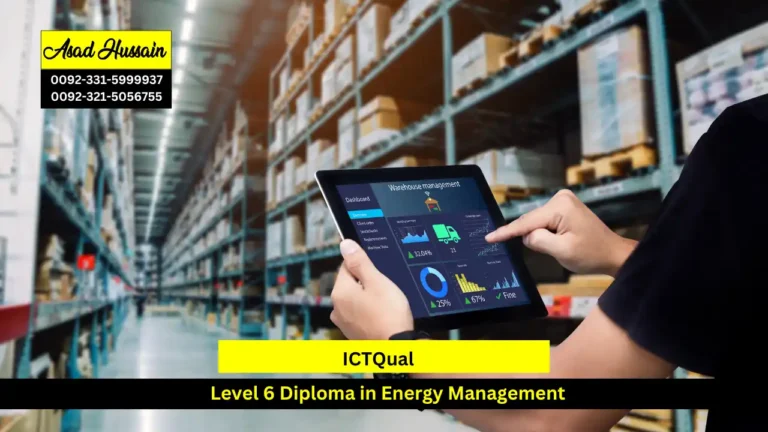In an ever-evolving legal landscape, a solid educational foundation is essential for those aspiring to excel in the field of law. The Qualifi Level 5 Extended Diploma in Law offers a comprehensive curriculum designed to equip students with the knowledge and skills necessary to thrive in various legal roles. Whether you’re aiming to become a solicitor, barrister, or legal consultant, this diploma serves as a crucial stepping stone toward your career goals.
The Qualifi Level 5 Extended Diploma in Law is an advanced qualification tailored for individuals who have completed foundational studies in law or a related field. It provides an in-depth exploration of legal principles, practices, and systems, ensuring that graduates are well-prepared to tackle complex legal issues. The program is structured to offer both theoretical and practical insights, blending academic rigor with real-world application.
This diploma is ideal for individuals who have completed a Level 4 qualification in law or a related field and wish to deepen their legal knowledge. It is also suitable for professionals seeking to enhance their legal expertise and advance their careers.
The Qualifi Level 5 Extended Diploma in Law is more than just a qualification; it’s a gateway to a fulfilling legal career. By providing a robust education in essential legal principles and practices, this diploma prepares students to excel in various legal roles and pursue further academic and professional opportunities. If you’re passionate about law and ready to take the next step in your legal journey, this diploma offers the perfect blend of knowledge, skills, and recognition to help you achieve your goals.
Program Highlights
The Qualifi Level 5 Extended Diploma in Law consist of 240 credits for the completed qualification.
Mandatory Units
- Contract Law
- Criminal Law
- Legal Methods
- Public Law
- Equity and Trusts
- EU Law
- Land Law
- Law of Tort
- The qualification has been designed to be accessible without artificial barriers that restrict access, for this qualification applicants must be aged 18 or over.
- In the case of applicants whose first language is not English, then IELTS 6 (or equivalent) is required. International qualifications will be checked for appropriate enrolment to UK higher education postgraduate programmes where applicable. The applicants are normally required to produce two supporting references, at least one of which should preferably be academic.
Contract Law
- Understanding Contract Formation: Explain the essential elements of a valid contract, including offer, acceptance, intention to create legal relations, and consideration.
- Analyzing Contractual Terms: Distinguish between express and implied terms, conditions, warranties, and innominate terms, and evaluate their significance in contract law.
- Remedies for Breach of Contract: Identify and assess the various remedies available for breach of contract, including damages, specific performance, and injunctions.
- Evaluating Vitiating Factors: Analyze the impact of vitiating factors such as misrepresentation, duress, undue influence, and mistake on the validity of contracts.
Criminal Law
- Foundations of Criminal Liability: Explain the principles of actus reus and mens rea and their application in determining criminal liability.
- Classification of Crimes: Classify various types of crimes, including offenses against the person, property offenses, and inchoate offenses.
- Defenses in Criminal Law: Evaluate the different defenses available in criminal law, such as insanity, self-defense, and duress.
- Criminal Justice Process: Describe the stages of the criminal justice process, from investigation and arrest to trial and sentencing.
Legal Methods
- Legal Research Skills: Develop proficient legal research skills using various sources, including statutes, case law, and legal databases.
- Legal Writing and Drafting: Demonstrate the ability to write clear, concise, and well-structured legal documents, including case briefs, memos, and opinions.
- Critical Thinking and Analysis: Apply critical thinking and analytical skills to evaluate legal arguments and evidence.
- Understanding Legal Systems: Compare and contrast different legal systems, including common law and civil law traditions.
Public Law
- Constitutional Principles: Explain the fundamental principles of constitutional law, including the rule of law, separation of powers, and parliamentary sovereignty.
- Judicial Review: Assess the process and grounds for judicial review of administrative actions.
- Human Rights: Analyze the protection and enforcement of human rights within the legal system, focusing on key human rights legislation.
- Government Structure: Describe the structure and functions of the various branches of government and their interrelationships.
Equity and Trusts
- Principles of Equity: Explain the historical development and principles of equity, including maxims of equity and equitable remedies.
- Trust Creation and Administration: Analyze the requirements for the creation and administration of trusts, including express, resulting, and constructive trusts.
- Fiduciary Duties: Evaluate the fiduciary duties of trustees and other fiduciaries.
- Equitable Remedies: Identify and assess the application of equitable remedies such as injunctions, specific performance, and rescission.
EU Law
- EU Institutions and Law: Describe the structure and functions of the European Union’s institutions and the sources of EU law.
- EU Legal Principles: Explain key principles of EU law, including direct effect, supremacy, and state liability.
- Impact of EU Law: Evaluate the impact of EU law on member states and their legal systems.
- EU Policy Areas: Analyze the development and implementation of EU policies in areas such as competition law, free movement of goods, and services.
Land Law
- Property Rights: Explain the nature and types of property rights, including freehold, leasehold, and easements.
- Land Registration: Describe the system of land registration and its significance in the transfer of property rights.
- Co-ownership: Analyze the legal principles governing co-ownership of land, including joint tenancy and tenancy in common.
- Landlord and Tenant Law: Evaluate the rights and obligations of landlords and tenants under lease agreements.
Law of Tort
- Foundations of Tort Law: Explain the fundamental principles of tort law, including the concepts of duty of care, breach, causation, and damage.
- Negligence: Analyze the elements of negligence and the defenses available to negligence claims.
- Strict Liability Torts: Evaluate the principles and applications of strict liability torts, including product liability and occupiers’ liability.
- Remedies in Tort Law: Identify and assess the remedies available in tort law, including compensatory damages and injunctive relief.
The Qualifi Level 5 Extended Diploma in Law is designed for individuals seeking to deepen their understanding of legal principles and practices, whether they are aspiring legal professionals or current practitioners aiming to enhance their expertise. This course is ideal for those who have completed foundational studies in law or a related field, such as a Level 4 qualification, and wish to build upon that knowledge to pursue advanced roles within the legal sector. It is also suited for professionals from various backgrounds who seek a comprehensive legal education to support their career progression, including paralegals, legal assistants, and those in administrative positions within law firms, corporate legal departments, or government agencies. By providing a thorough grounding in essential areas of law, this diploma prepares students for a range of legal careers and further academic pursuits.







